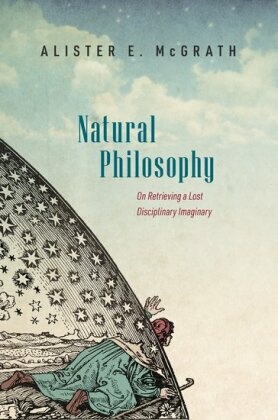Natural Philosophy - On Retrieving a Lost Disciplinary Imaginary
| Verlag | Oxford University Press |
| Auflage | 2022 |
| Seiten | 258 |
| Format | 16,0 x 2,0 x 24,4 cm |
| Print PDF | |
| Gewicht | 546 g |
| Artikeltyp | Englisches Buch |
| EAN | 9780192865731 |
| Bestell-Nr | 19286573EA |
This book argues for the retrieval of the concept of 'natural philosophy', encompassing the natural sciences, philosophy, and theology, amongst others. It identifies the essential characteristics of natural philosophy from its Aristotelian roots onwards, and then makes a creative proposal on how we might reincorporate it into our current worldview.
Recovering the forgotten discipline of Natural Philosophy for the modern world
This book argues for the retrieval of 'natural philosophy', a concept that faded into comparative obscurity as individual scientific disciplines became established and institutionalized. Natural philosophy was understood in the early modern period as a way of exploring the human relationship with the natural world, encompassing what would now be seen as the distinct disciplines of the natural sciences, mathematics, music, philosophy, and theology.
The first part of the work represents a critical conversation with the tradition, identifying the essential characteristics of natural philosophy, particularly its emphasis on both learning about and learning from nature. After noting the factors which led to the disintegration of natural philosophy during the nineteenth century, the second part of the work sets out the reasons why natural philosophy should be retrieved, and a creative and innov ative proposal for how this might be done. This draws on Karl Popper's 'Three Worlds' and Mary Midgley's notion of using multiple maps in bringing together the many aspects of the human encounter with the natural world. Such a retrieved or 're-imagined' natural philosophy is able to encourage both human attentiveness and respectfulness towards Nature, while enfolding both the desire to understand the natural world, and the need to preserve the affective, imaginative, and aesthetic aspects of the human response to nature.
Inhaltsverzeichnis:
Introduction: On Retrieving Natural Philosophy
Part One: A Critical Conversation with the Tradition
1: The Origins of Natural Philosophy: Aristotle
2: The Consolidation of Natural Philosophy: The Middle Ages
3: Skywatching: The Natural Philosophy of Copernicus, Kepler, and Galileo
4: English Natural Philosophy: Bacon, Boyle, and Newton
5: The Parting of the Ways: From Natural Philosophy to Natural Science
Part Two: A Reconceived Natural Philosophy: Exploring a Disciplinary Imaginary
6: Reconceiving Natural Philosophy: Laying the Foundations
7: Theory: The Contemplation of Nature
8: Objectivity: Understanding the External World
9: Subjectivity: An Affective Engagement with Nature
10: Natural Philosophy: Recasting a Vision
Acknowledgements
Works Consulted
Index
Rezension:
In my opinion, this is McGrath's most important work to date, and might even be a candidate of 21st century classics. Michael Borowski, Reviews in Science, Religion and Theology

